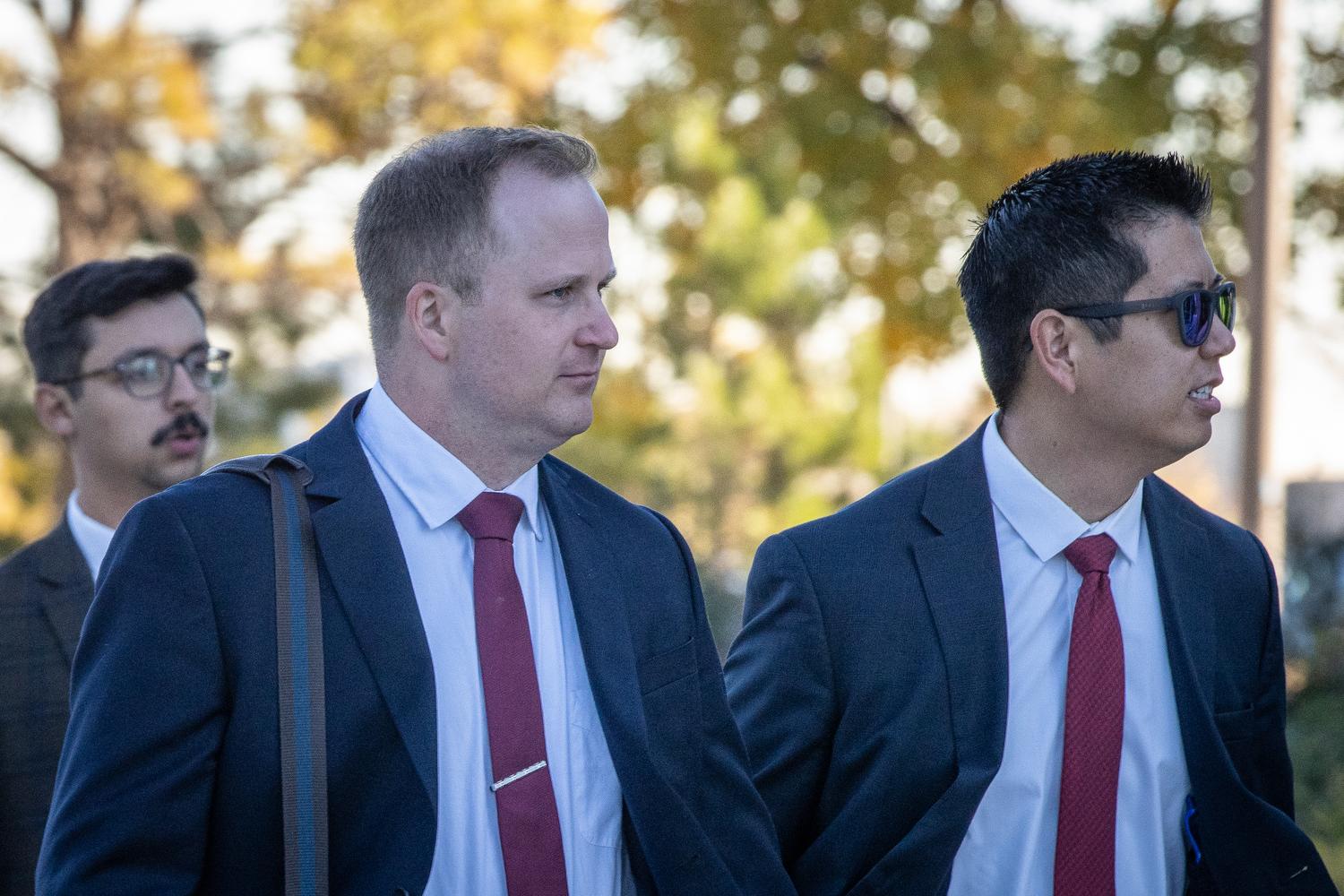
Through testimony of an Aurora police trainer and a former supervisor, prosecutors tried on Wednesday to painstakingly establish that Nathan Woodyard failed to follow his training after giving Elijah McClain a carotid hold at a police stop in 2019.
The maneuver was an approved use of force at the time at the Aurora Police Department, and Woodyard administered the hold within a few minutes of forcibly detaining McClain, who was unarmed and walking home from a convenience store carrying iced teas.
Carotid holds, which temporarily cut blood flow to the brain and usually render a person briefly unconscious, are now banned for police use in Colorado.
Assistant attorney general Jason Slothouber pressed Aurora Police Training Academy instructor Kevin Smyth on the work the academy did to train officers, including Woodyard, on the proper techniques of the carotid hold. Smyth said they spent six hours of training on the carotid hold alone at that time because it was considered more dangerous than other non-lethal uses of force.
Woodyard first attended the academy in 2016, but went through carotid control training at least five times in required professional development.
“We want to make sure officers have regular training that if it isn’t done correctly can cause more risks,” Smyth said. “We want to avoid repeated applications on the same person over and over … Risks go up when you repeatedly apply it.”
Another officer on the scene, Jason Rosenblatt, administered a carotid hold on McClain but he didn’t lose consciousness, and Rosenblatt could be heard in the body camera footage saying he didn’t think it worked. Rosenblatt was acquitted of the charges against him in McClain’s death earlier this month.
Slothouber pressed Smyth on the things officers are supposed to do after giving that carotid hold, including checking the subject for coherency and whether they could breathe. McClain said seven times that he couldn’t breathe, and officers failed to relay that to medical professionals when they arrived on the scene, according to body camera footage.
“Once they regain consciousness, there is a very slight risk of stroke,” Smyth said. “At 30 seconds, we need to make sure they’re at least answering questions. You ask questions, what day of the week is it? What’s your middle name? Who is the president? Are they understanding us?”
In body camera footage shown in this trial and the last one, it appeared that Woodyard left the scene within a few minutes of giving the carotid hold, which prosecutors say was recklessly negligent. They also say he ignored McClain’s many cries for help at the time.
Defense attorneys have said Woodyard got called off the scene by supervisors and that McClain was talking in full sentences immediately following the second carotid hold and so it didn’t appear to officers at the time that he was in any major peril from it.
Defense attorneys also said that, at the time, carotid holds were legal and deemed safe by an emergency physician medical group. There are also no indications, they said, that Woodyard performed the hold incorrectly.
Stephen Redfearn, who was a supervisor on duty the night of McClain’s stop, testified on Wednesday that all use of force is “situational and broad” and that included carotid holds, at the time.
Redfearn also said that officers are trained that they are supposed to call for medical treatment after administering the carotid hold.
The Aurora Police Department has been forced to improve its use of force policies since it entered into a state consent decree with the state attorney general’s office after McClain’s death.
The attorney general found Aurora Police had a pattern and practice of using force excessively — particularly against people of color, according to a report released two years ago.
Jeff Schlanger, an independent overseer in charge of the APD reforms, is trying to prioritize deescalation and public safety — and away from force, even when it might be legally justified. The process should take five years and he said this month that APD completed a comprehensive overhaul of its use of force policies, “which marks a major step towards cultural change within the agency.”
All officers on the force have had initial training in new policies, but Schlanger said the department is still working on creating a culture that values deescalation, including how supervisors review officers’ conduct. Schlanger also said they’re still working on data collection and transparency around police stops.
The trial for Woodyard, who is on leave from APD currently, continues on Friday morning. There is no testimony Thursday.
CPR's Rachel Estabrook contributed reporting.








